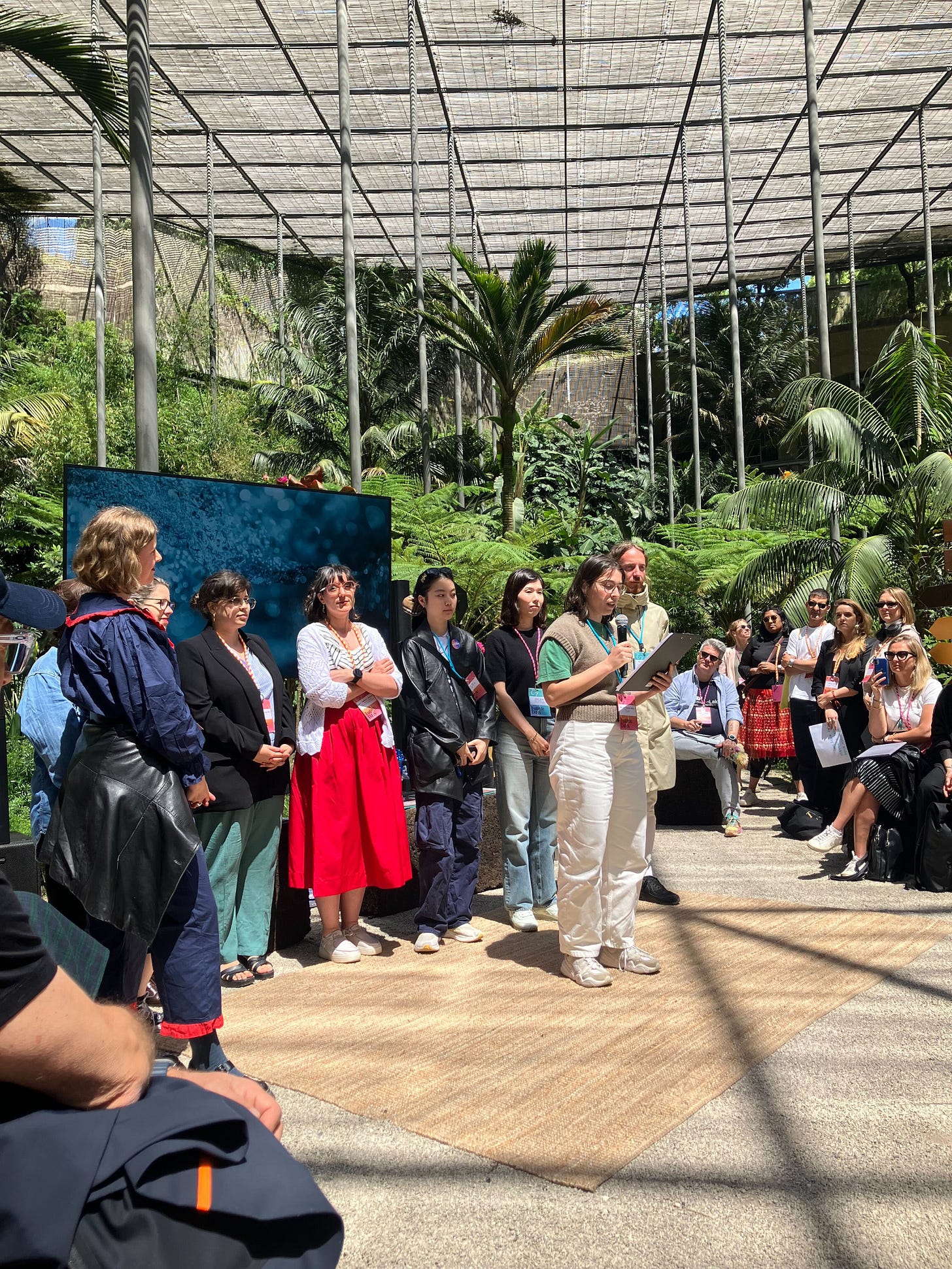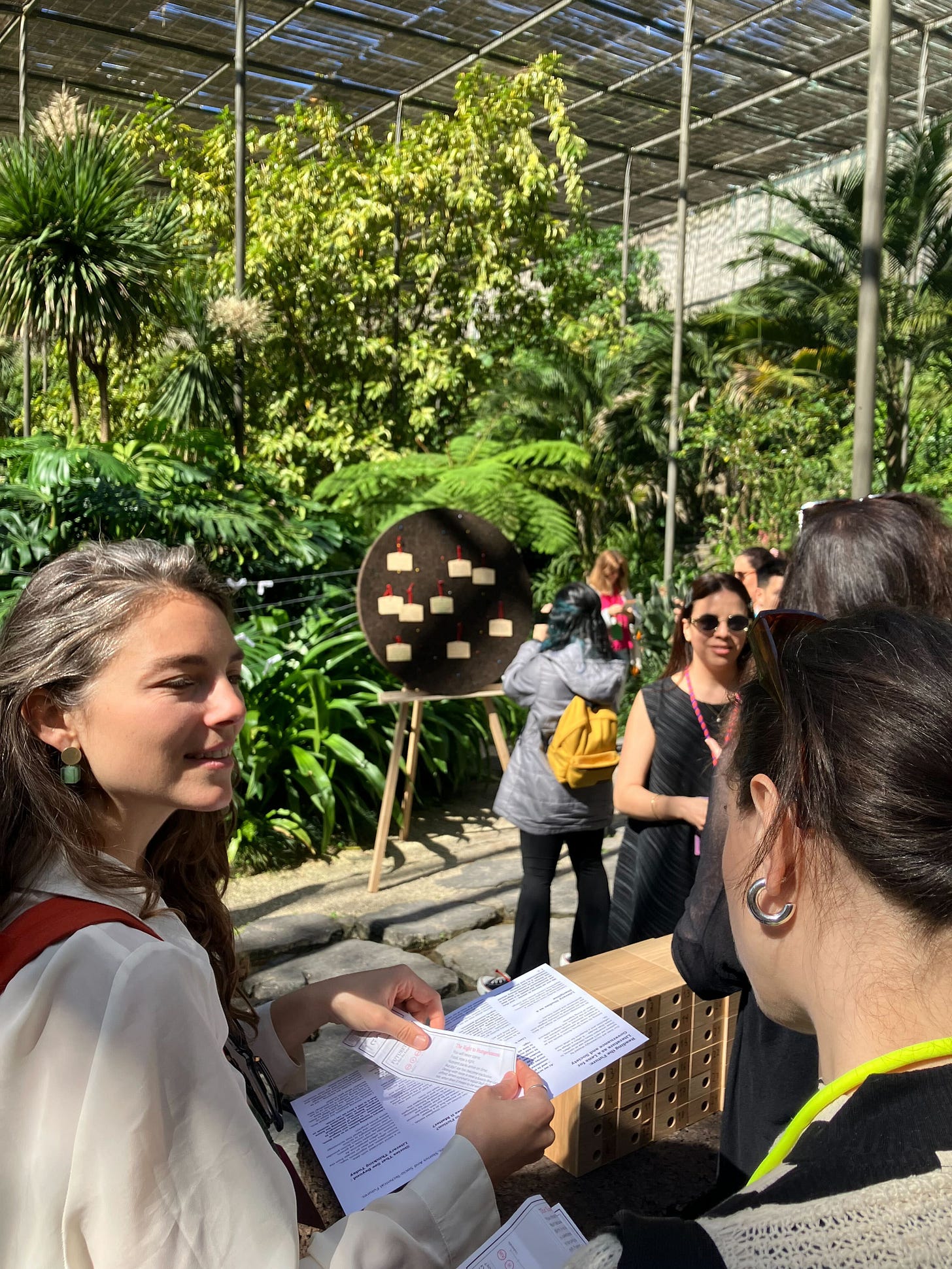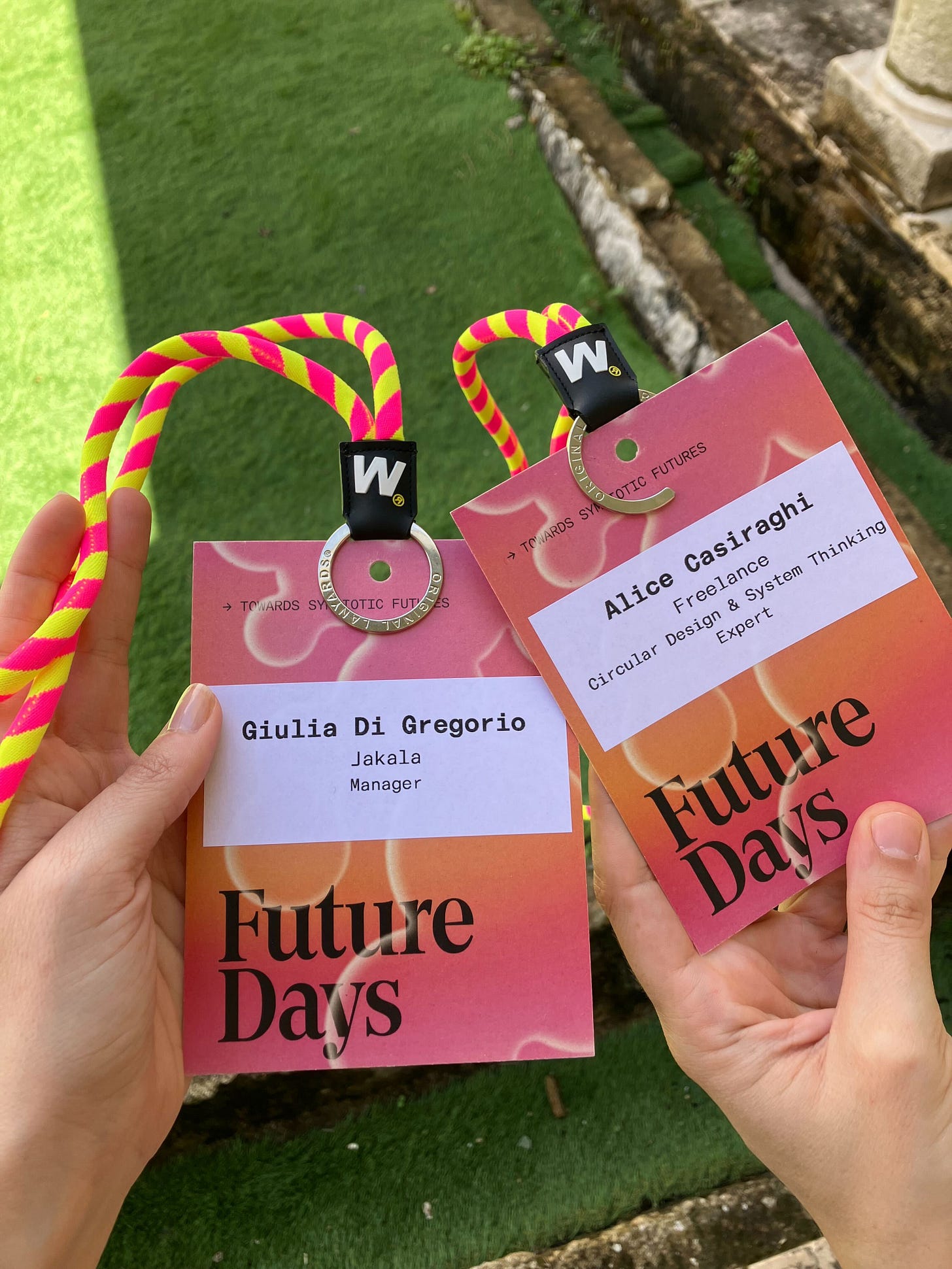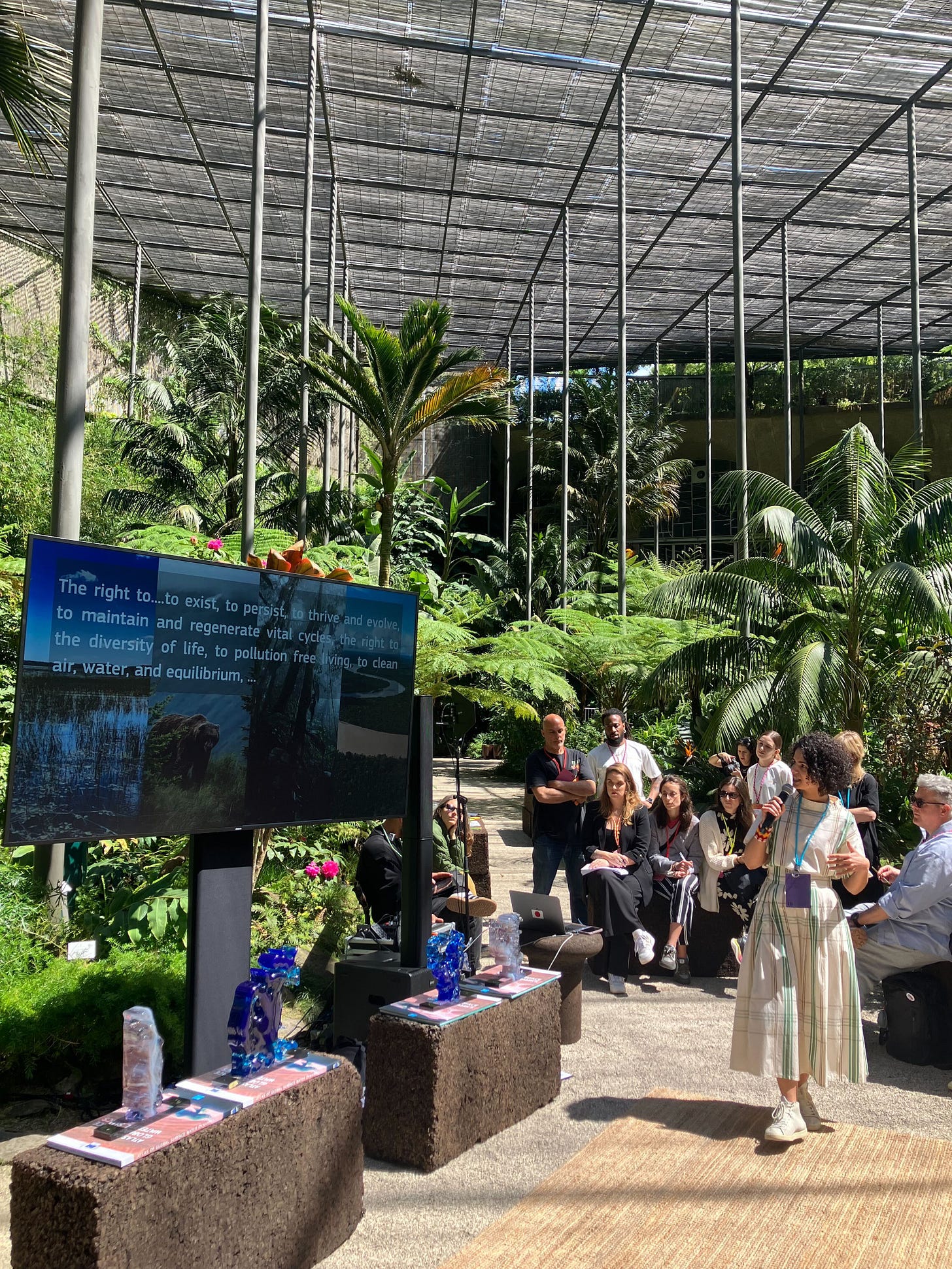Attending Future Days felt like a mirror held up to the design world and beyond, reflecting both our struggles and our sparks of hope.
It was a space filled not with big corporate banners, but with real people (freelancers, educators, startup founders, students) all eager to share, question, and connect. Below are the 10 key insights I’m taking home with me.
1. Logistical surprises are always around the corner
No matter how well-organized an event seems, there’s always room for the unexpected, and Future Days was no exception. First, a blackout in Portugal, Spain, and Southern France the day before the conference disrupted travel plans, although thankfully only a few attendees were affected. Then, one of the speakers, Sheng-Hung Lee (PhD Researcher at MIT Agelab) couldn’t make it due to visa issues, but their remote talk turned out to be excellent. If anything, all these glitches were a reminder that adaptability is just as essential as preparation when it comes to live gatherings, and the Future Days team handled it all impressively.
2. Hosting an event in a giant greenhouse makes everything better
Let’s be honest: setting matters. The venue, a massive glasshouse surrounded by nature, added a softness to every interaction. It reminded us of what design often forgets: the environment you’re in can change the way you think, speak, and feel.
3. The quality of networking was unmatched
Forget business cards and LinkedIn connections: the conversations at Future Days were deep, real, and human. People (from all other the world, which is a plus for me) were there to listen, not just to pitch. That kind of exchange is rare, and it’s why I’ll always prefer conferences like this over design weeks or formal training courses.
4. Where are the corporates?
The crowd at Future Days was refreshingly indie: mostly freelancers, founders of small studios, educators, students, and creatives from the nonprofit and startup worlds. Big corporations were notably absent. Are they too slow to join the conversation, or do they feel these spaces aren’t “for them”? Either way, the lack of their presence was felt, and also, not necessarily missed.
5. The West is in crisis: time to admit and transform
From economics to education to mental health, many talks touched on a growing sense of discomfort in the Western world. The mood wasn’t one of panic, but of quiet acceptance, a collective acknowledgment that something isn’t working. That realization alone felt like a meaningful step forward. Both Sohail Inayatullah (UNESCO Chair in Future Studies), and Payal Arora (Professor of Inclusive AI Cultures at Utrecht University) spoke about this with striking clarity.
6. There’s growing curiosity about minorities — and a desire to give credit where it’s due
Discussions around gender, race, and systemic oppression weren’t side notes — they were central. There’s still a long way to go, but the fact that these topics were approached with honesty and urgency gave me hope. Lex Fefegha’s (Creative Coder) talk on missing data archives and Gem Barton’s (Lead at Superfutures) reflections on the need to shift perspective to uncover what often goes unseen both powerfully underscored the importance of rethinking who and what we center in our narratives.
8. Experiences like these are more beautiful when they’re shared
I’m so glad I was traveling with my friend Alice Casiraghi, Circular Design and Systemic Thinking Expert, and Silvia Rossetti, Service Designer and Host of Service Design Drinks. You both made my experience at Future Days even more meaningful, and continue to inspire me in different, valuable ways.
Talking about sustainability…
9. People feel more responsible for climate change in their personal lives than at work
One of the most striking insights came during a sustainability workshop led by Elahe Rajabiani from European Commission Policy Lab. It was not just well-structured, but truly thought-inspiring. Many participants realized that while they make eco-conscious choices in their personal lives, they struggle to carry those same values into their professional contexts. It made me pause and wonder: how can we better bridge that gap between personal responsibility and systemic change?
10. Events like this still matter, now more than ever
In a time when everything is online, noisy, and algorithm-driven, the chance to slow down and connect in person feels revolutionary. Future Days didn’t have all the answers, but it offered space for better questions, and that, to me, is invaluable.
Stay in touch!





